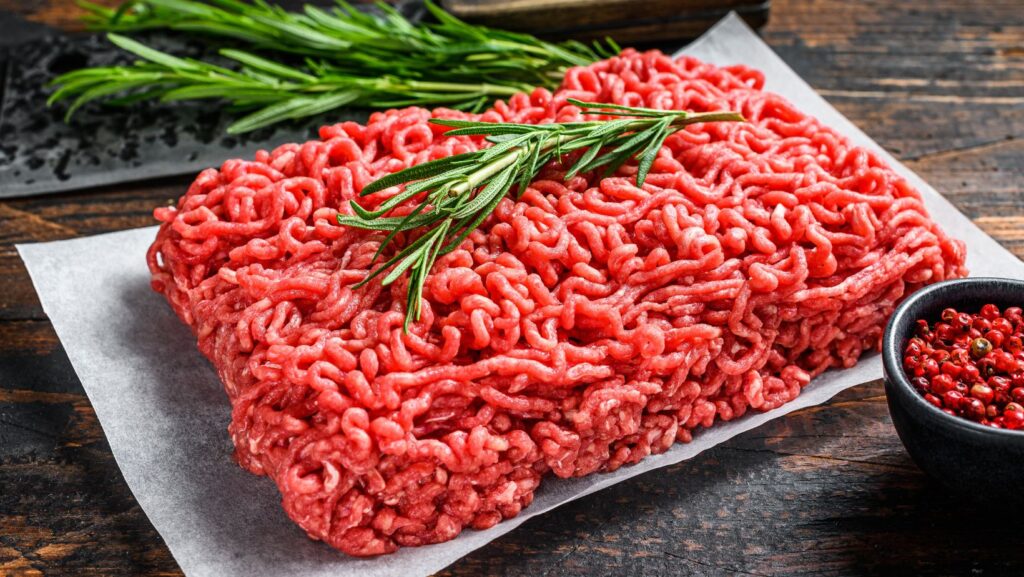Dive into the world of nutrition and you’ll find an ocean of choices. One of the staples in many diets is ground beef, particularly the 80/20 variety. But what does that ratio mean and how does it impact the nutritional value of your meals?
Understanding the 80/20 ground beef nutrition can make a world of difference in your dietary choices. It’s not just about the flavor, it’s about the balance of proteins, fats, and other essential nutrients. Whether you’re a seasoned chef or a home cook, getting to know your ingredients is key.
This article will shed light on the nutritional facts of 80/20 ground beef, helping you make informed decisions about your diet. So, let’s delve into the nitty-gritty of this popular meat choice and explore its nutritional profile.
When approaching ground beef 80/20 nutrition, it becomes clear that comprehending its composition plays a crucial role. It’s not just about the taste or texture of this commonly consumed protein source, but also understanding what goes into every bite.
Ground Beef 80/20 Nutrition
 80/20, in the context of ground beef, pertains to the ratio of lean meat to fat. In this case, 80% signifies lean meat while the remaining 20% represents fat content. This blend, often preferred for its juicy flavor and tender texture, has implications on the nutritional content present in every serving. For instance, a higher fat percentage impacts the calorie and saturated fat content, factors crucial for individuals monitoring their dietary intake.
80/20, in the context of ground beef, pertains to the ratio of lean meat to fat. In this case, 80% signifies lean meat while the remaining 20% represents fat content. This blend, often preferred for its juicy flavor and tender texture, has implications on the nutritional content present in every serving. For instance, a higher fat percentage impacts the calorie and saturated fat content, factors crucial for individuals monitoring their dietary intake.
Nutritional Content Breakdown
When dissecting ground beef 80/20 nutrition elements, certain key constituents stand out. For a serving size of 100 grams, ground beef 80/20 contains approximately:
- Calories: You’ll find around 254 calories. Considering an average dietary allowance of 2000 calories per day, a 100-gram serving corresponds to about 12.7% of the daily intake.
- Protein: Protein stands at about 17.2 grams, contributing to muscle building and repair.
- Fat: The fat content totals approximately 20 grams. Fat is essential for bodily functions, including the absorption of vitamins.
- Cholesterol: There’s around 77 mg of cholesterol in the mix. While some cholesterol is crucial for body functioning, excess consumption can lead to heart health issues.
- Minerals & Vitamins: Ground beef is a significant source of Iron and Vitamin B12, critical for red blood cell formation and nerve functionality, respectively.
It’s evident that while ground beef 80/20 offers key nutrients, it also includes elements like fats and cholesterol, consumption of which demands moderation.
Health Benefits of Ground Beef 80/20
Offering a variety of essential nutrients, ground beef 80/20 plays a vital role in a balanced diet. It provides bodybuilding proteins, vital minerals, and essential vitamins in sizable quantities. The two core benefits to delve into include its protein content as well as vitamin and mineral offerings.
Protein Content and Muscle Building
Ground beef 80/20 provides high-quality protein, integral in muscle building and maintenance. Each 100-gram serving features nearly 20 grams of protein, making it a robust choice for those engaged in physical workouts or muscle training regimes. Consuming protein after a workout, such as that found in ground beef, assists in repairing muscle tissues, underlining ground beef’s efficiency as a post-workout foodstuff.
Vitamins and Minerals in Ground Beef
Besides dense protein content, ground beef 80/20 supplies generous doses of vitamins and minerals vital for body functioning. For instance, a 100-gram serving delivers about 2.07 mg of iron, excellent for combating anemia. It also contributes nearly 2.28 mcg of vitamin B12, instrumental in nerve functionality and red blood cells production. Thus, incorporating ground beef 80/20 in the diet caters to varied nutritional needs, making it a desirable choice for many.
Dietary Considerations and Risks
While the virtues of ground beef 80/20 are aplenty, a few dietary concerns merit consideration.
